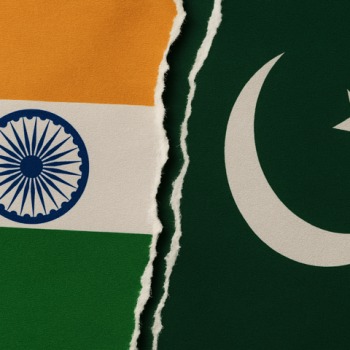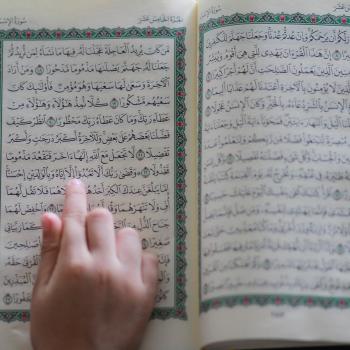by Amer Aziz
How France’s proposal to change alleged anti-Semitic verses in Quran subverts the legacy Of The French Revolution
Following a spate of anti-Semitic crimes by religious extremists in France, some 300 prominent French intellectuals and politicians, including former President Nicolas Sarkozy, recently signed a manifesto alleging that Quranic verses incite anti-Semitic violence, and thus should be ‘struck into obsolescence’. The idea appears to be wholesale deletion of such verses so that—as the manifesto asserts—‘no believer can refer to a sacred text to commit a crime’.
The world has turned dramatically darker when thought-leaders of France, historically seen as the bastion of western renaissance and enlightenment, stoop to the level of the religious extremists they are claiming to counter. Suggesting to delete verses in the Quran is not only a sweeping condemnation of the religion as a whole, it is also unpractical, academically and intellectually dishonest, and can only really be understood as an act of rage and hysteria.
For starters, deleting the verses is not even sane at a practical level. There are probably over a billion copies of the Quran in circulation in just about every country outside of France. Even if every copy could be supernaturally seized and the verses deleted, history bears testimony that it’ll do nothing to solve the problem. For example, the first Christian Crusades launched under Pope Urban II saw its mission to recapture Jerusalem from the Muslims. They were successful. What followed was utterly bizarre. In one of the worst massacres of history, the crusaders deemed it their religious duty to slaughter Muslims and Jews in an act that seems to run contrary to the New Testament legacy of forgiveness and turning the other cheek.
Au Contraire, when the Muslim Commander Salahadin captured Jerusalem back from the Crusaders, he offered safe passage out of the city for every Jew and Christian wishing to leave.
Extremism tends to be a product of political and economic realities as much as ideological fury. Interestingly, low self-esteem and economic stress are reported as to have existed with both, Pope Urban’s blood-thirsty Crusaders from a thousand years ago and France’s extremist Muslims today— most of who come from former French colonies in North Africa and harbor a strong sense of exploitation and victimization from the colonial era. Impoverishment and a damaged sense of pride will easily give way to demagoguery, and eventually extremism— whether you can quote scripture or not.
The Alleged Anti-Semitic Verses
Still, we need to scrutinize these alleged verses as well as historically contextualize them. The Quran makes references to Muslims, Jews and Christians in a manner similar to how people generally do in a day-to-day sense. Religious identity is widely understood to be a social identity too. We broadly assign communities and nations as Muslim, Christian or Jewish. Yet, there are murders and rapists in those nations whose names are Muhammad, Jesus or Abraham. If someone wants to assert that Mohammad Imran, the pedophile serial-killer who raped and murdered seven year old Zainab Ansari in Pakistan, is not a Muslim or a religious person, few would have a problem with that assertion. But the social identity of a Muslim from a Muslim country sticks even with hardened criminals.
Similarly, the Quran makes references in a sense of social identity as well in a more essential religious sense, but it does draw the distinction clearly. For example, verse 49:15 states that the Arabs announced that they believe in Islam, but the verse cautions not to take their acceptance of Islam as true belief—echoing the conventional wisdom that knowing the path and walking the path are two very different things.
Verse 9:29 is certainly one that the authors of the anti-Quran manifesto would be calling into question. It reads, “Fight those from among the People of the Book (Jews and Christians) who believe not in Allah, nor in the Last Day…”. Now, we know that, generally speaking, Jews and Christians believe in God and the Day of Judgement. So what does it mean to say those Jews and Christians who do not believe? Another verse (2:63) states, “Surely, the believers, and the Jews, and the Christians, and the Sabians, whichever party believes in Allah and the Last Day and does good deeds shall have their reward with their Lord”. Here, the Jews and Christians are distinguished from the ones in 9:29 as ‘believers’—meaning they act according to the message of scripture such as promoting peace, an emphasis on justice (even with the enemy) and freedom of religion. Whereas the non-believing Jews and Christians of verse 9:29 are the ones acting contrary to these values.
Contrary to some media commentators, verses like 9:29 and 2:63 are not inconsistencies, nor do they require contextualizing to understand the distinction therein. Still, historical and political context is, in fact, very helpful here.
Historical and Political Context
The Islamic movement was born into the throes of a raging regional theater of war between the super-powers of Rome and Persia who asserted their power based on notions of religious supremacy, breeding intolerance and persecution. Historian Peter Frankopan, Director of Byzantine Studies at Oxford, writes in his best-seller The Silk Roads, “Muhammad actively sought to fuse the many tribes of southern Arabia into a single block. The Romans and Persians had long manipulated local rivalries and played leaders off each other”. As the Islamic movement grew, the opposition raised a large confederate army for an all-or -nothing showdown with the Muslims known as the Battle-of-the-Trench: a large trench was dug around the city of Medina in a bid to survive the massive onslaught.
The Jewish Banu Quraizah tribe, under pact with Muslims and other tribes as co-citizens of Medina, apparently did not expect Muslims to be able to mount a defense and entered league with the invaders. But, the ditch-stratagem worked– the Confederates, unable to breach it, eventually retreated. The Banu Quraizah were subsequently tried and some were executed for high treason while under a mortal attack by the enemy. This event is oft alleged as a basis for extremist anti-Semitic ideology, though it has a rich political backdrop.
Muhammad, The Savior of the Jews
Historical record reveals that generally Jews welcomed the new Muslim rule in the region and the wide relief it brought from Roman-Christian persecution. Peter Frankopan writes: an unmistakable and striking theme can be consistently teased from the literature of this period, Muhammad and his followers went to great lengths to assuage the fears of Jews and Christians. In fact, Muhammad even came to be debated in Jewish writings as the messianic fulfillment of prophecy who delivered the Jewish people from the tyranny of Rome and Christian anti-Semitism— they were saying that the prophet had appeared, coming with the Saracens (Arabs), and that he was proclaiming the advent of the anointed one, the Christ that was to come (Seeing Islam as Others Saw It: A Survey and Evaluation of Christian, Jewish and Zoroastrian Writings on Early Islam— Princeton 1997).
When the Caliph Omar (2nd successor to Muhammad) conquered Jerusalem, he removed Roman Emperor Heraclius’s ban on Jews from entering the city.
French politicians and intellectuals would do well to take cue from their very own Napoleon Bonaparte of the French Revolution and the subsequent renaissance it is thought to have spawned. Napoleon is believed to have been an admirer of the Quran, and stated that he hoped to one day unite humanity under its principles. By taking an unstudied and unreasoned view of the Quran, the French leaders supporting this manifesto are achieving little more than subverting the legacy of their own revolution in modern history, and most grievously stooping to the level of the extremists.












